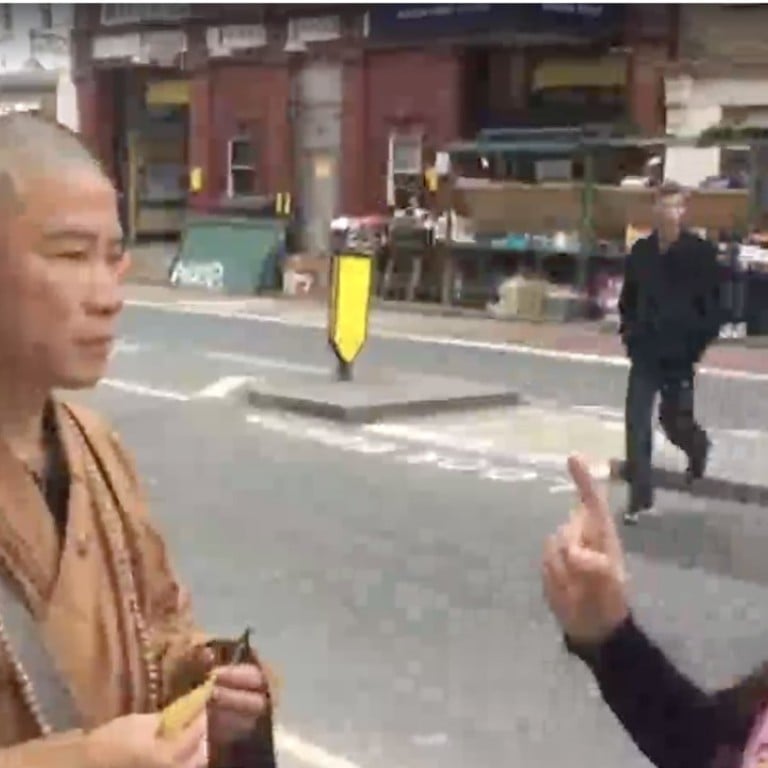
Six ways to spot a fake Buddhist monk after Hong Kong ex-actress Mary Jean Reimer on crusade to expose them strikes again
With actress-turned-lawyer striking again in London, forcing an impostor soliciting donations to disrobe on the spot, we reveal six ways you can tell a real Buddhist monk from a fake one
An actress-turned-lawyer who launched a crusade to expose fake monks has struck again. This time she confronted an impostor soliciting donations in London, who she cornered and forced to disrobe on the street. The man vowed to convert to Buddhism on the spot.
In 2015, Mary Jean Reimer accused Sik Chi-ding, the abbess of Ting Wai Monastery in Hong Kong’s Tai Po district, of pocketing millions of Hong Kong dollars in donations, and of sham marriages with two monks for residency purposes. The nun and a monk were later arrested on suspicion of engaging in a bogus marriage.
Hong Kong nun spent thousands on sexy bras, skincare with monastery donations
A practising Buddhist who used to sit on the board of Ting Wai Monastery, Reimer was in London ahead of a meditation retreat she will attend in June in Hertfordshire, just north of the British capital. She ran into a Chinese man wearing a brown monk’s cassock soliciting donations in Tottenham in north London.
With a friend videoing her, Reimer stopped someone who was in the act of making a donation to the man, and asked him to produce his jiedie (a certificate of ordination as a Buddhist monk issued by the Chinese government). The man produced a piece of paper resembling an amulet instead. Then she asked him to follow her in reciting Buddhist incantations.
She threatened to call police and made the man give her his passport and disrobe on the spot. Imploring her to let him go, the man, surnamed Chen, eventually told her he would make amends and convert to Buddhism.
The video was posted in Buddhist Alert, a Facebook group Reimer set up in 2016 to encourage the public to expose Buddhist misdeeds. The video quickly spread online, prompting heated discussion. In one post, a user calling himself Mike, who runs a restaurant in Beijing, said he supported her move.
“Many such people came to my restaurant to solicit donations. I told them if they can recite the Great Compassion Mantra three times, I will donate. But they just leave,” he wrote.
Another post, from Sam Lee, a building services contractor from Hong Kong living in Beijing who has practised Buddhism for more than a decade, criticised her actions.
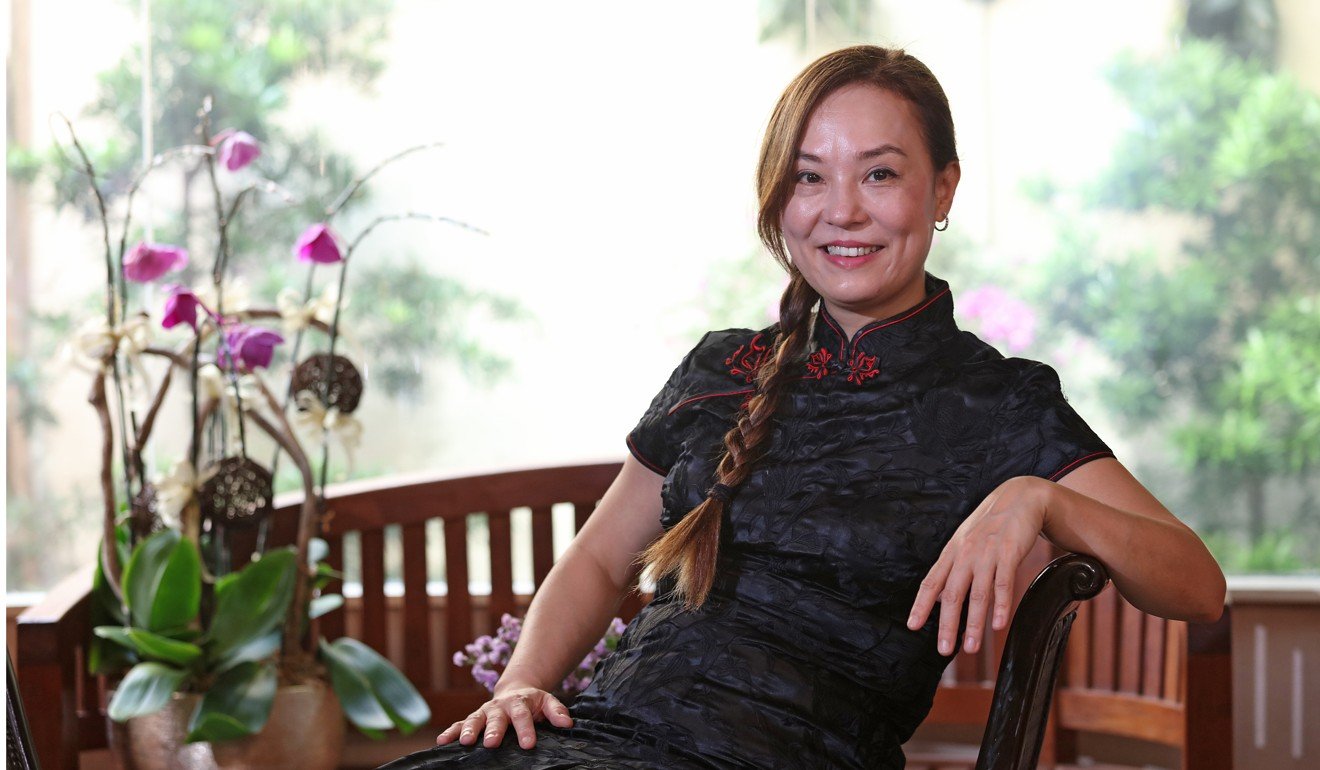
Fake monks soliciting donations have become a scourge in Southeast Asia. In China, some Buddhist temples have engaged in all kinds of commercial activity and pressured tourists to make donations. This prompted the central government to issue a ban last year on the involvement of commercial capital in Taoism and Buddhism and on profit making activities associated with the two religions.
Impersonating a monk to bilk passers-by out of money is among activities covered by the Chinese government’s crackdown.
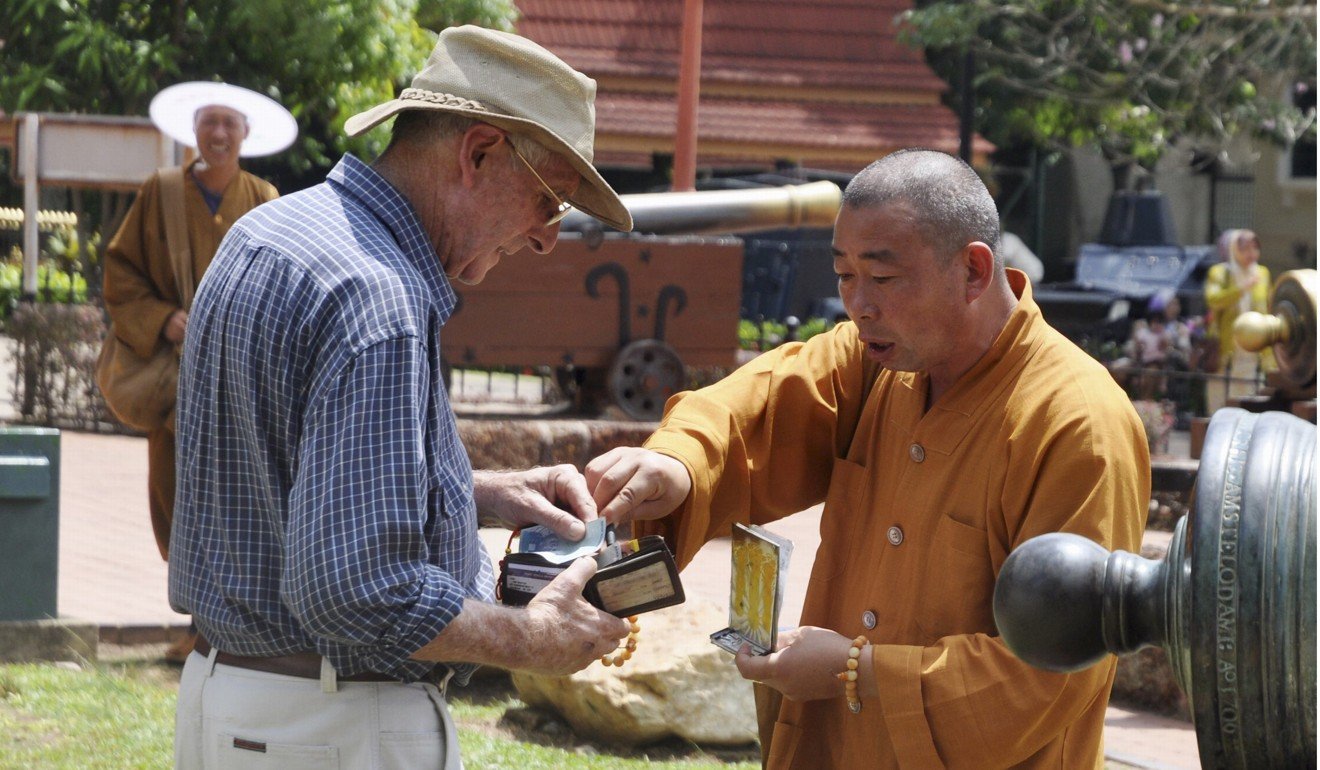
Online poster Lee told the Post that, while he did not object to Reimer acting to discourage deception, her tactics are too aggressive. “She went overboard in her campaign to catch fake monks,” he says.
He says scolding someone in Buddhist robes vigorously and spreading the footage around was disrespectful to real monks. “She handled the matter without enough [tact],” he says.
[Buddhist customs enjoin] followers to refrain from criticising fake monks. As long as he wears the cassock, we have to show respect even though he is an impostor
He says Reimer appears to advocate an across-the-board crackdown on monks soliciting money – which contradicts scriptures of the northern branch of Buddhism.
Buddhism is divided into three schools – Theravada, Mahayana and Vajrayana – which follow different precepts. Mahayana, or northern Buddhism is practised mainly in the northern half of the traditional Buddhist world, including China (especially its Tibet and Taiwan regions), Korea, Mongolia and Japan. Theravada Buddhism, also called southern Buddhism, is practised in Sri Lanka, Cambodia, Thailand, Laos and Myanmar.
Hong Kong banker turned Buddhist nun on how being held at gunpoint changed her life
A Theravada monk is not allowed to work or handle money. He must get a disciple to handle all financial matters. However, the Mahayana school does not see money as evil and allows its monks to accept donations.
“How can a monk survive if panhandling is banned altogether? [Reimer’s] campaign can affect those real [Mahayana] monks who solicit donations for commuting,” Lee says. “She shouldn’t use southern Buddhism’s precepts to attack northern Buddhist practices.
“[Buddhist customs also enjoin] followers to refrain from criticising fake monks. As long as he wears the cassock, we have to show respect even though he is an impostor.”
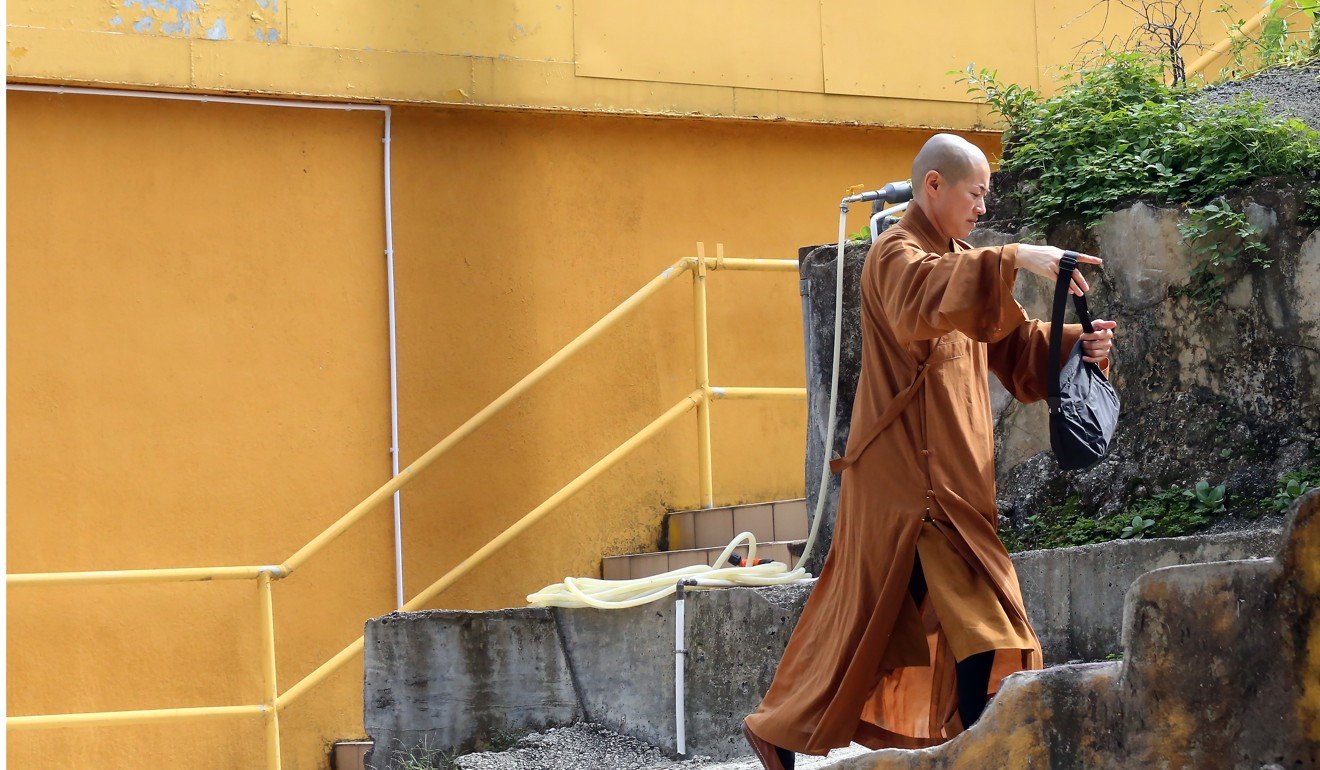
(Southern and northern Buddhist scriptures also diverge over the eating of meat. While northern Buddhism forbids meat-eating, the southern school allows it as long as three requirements are fulfilled: not seeing the animal being killed, not hearing it being killed, and not suspecting that it is being killed for the eater. This means that meat sold by a store owner can be eaten, as it was not killed for a particular shopper.)
Defending her act, Reimer says Buddha did not promote differentiation and division.
“To attain enlightenment, Buddhist followers have to possess wisdom, compassion and not have a divisive heart. I want to restore Buddhism to its primordial state which doesn’t contain divergent sects.”
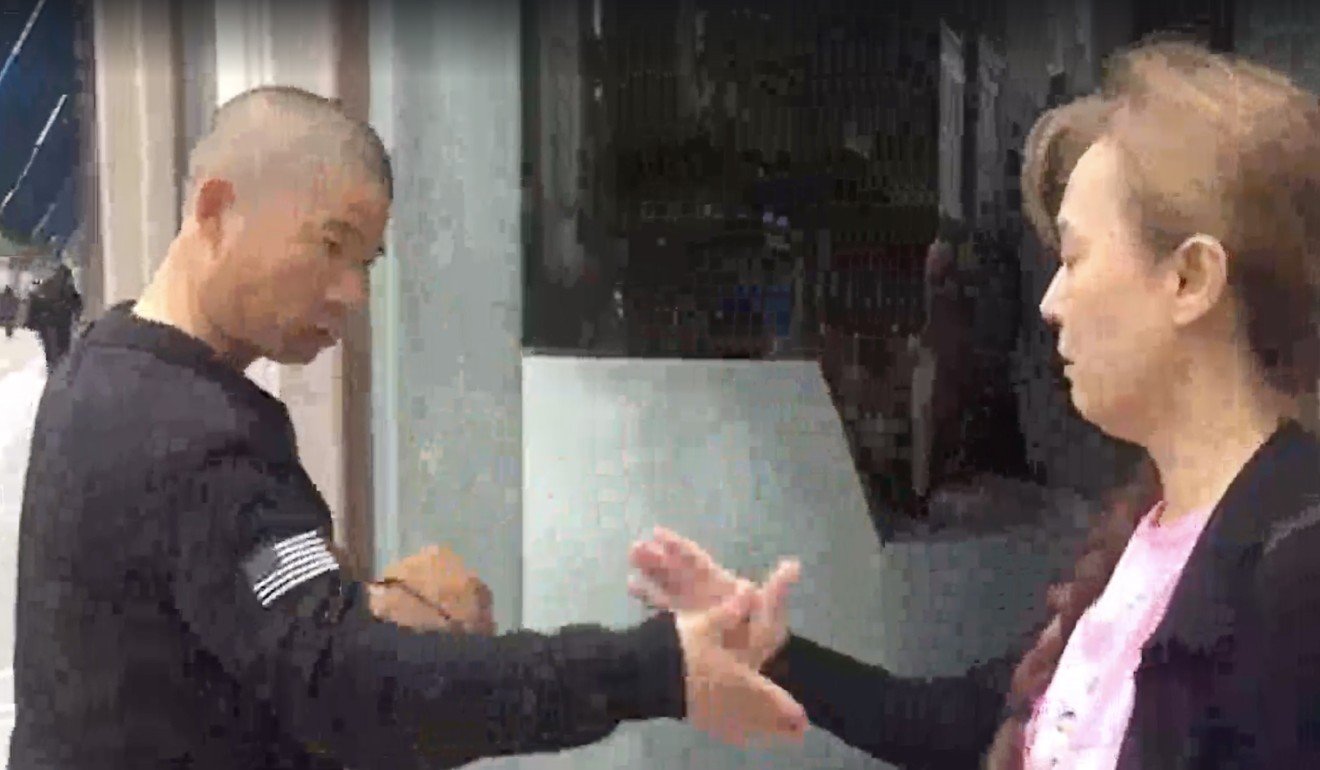
Though she won a civil court case against Ting Wai Monastery in Tai Po, with the court ordering its winding-up last November, she says she is still reeling from the episode.
“I had to sell assets to pay the huge bill [for the court case]. I only repaid all my debts in March. My health has worsened a lot,” Reimer says.
“[But] my actions have won kudos from many monks. The public has also been emboldened to take issue with [monks’ deviant behaviour].”
Six ways to tell whether a monk is real or fake
1. In general, monks from real temples do not solicit money on the streets (though a Mahayana monk may solicit donations to cover the costs of his travel).
2. Anyone holding a monk’s bowl to solicit money on the streets is fake, as the bowl is only for food in Buddhism.
3. Anyone who hustles on the street selling amulets and other fortunetelling products such as paper medallions or bead bracelets is fake.
You’re not a monk ... you’re a fake: how one Buddhist crusader is catching out Hong Kong’s street scammers
4. Buddhist rules forbid monks from engaging in geomancy, face or palm reading, or any activities related to feng shui.
5. Real monks do not act aggressively, and would happily offer blessings without asking for anything in return.
6. Genuine monks will be willing to answer questions about which temple they belong to and Buddhism in general (such as about the Five Precepts), and recite Buddhist incantations.

